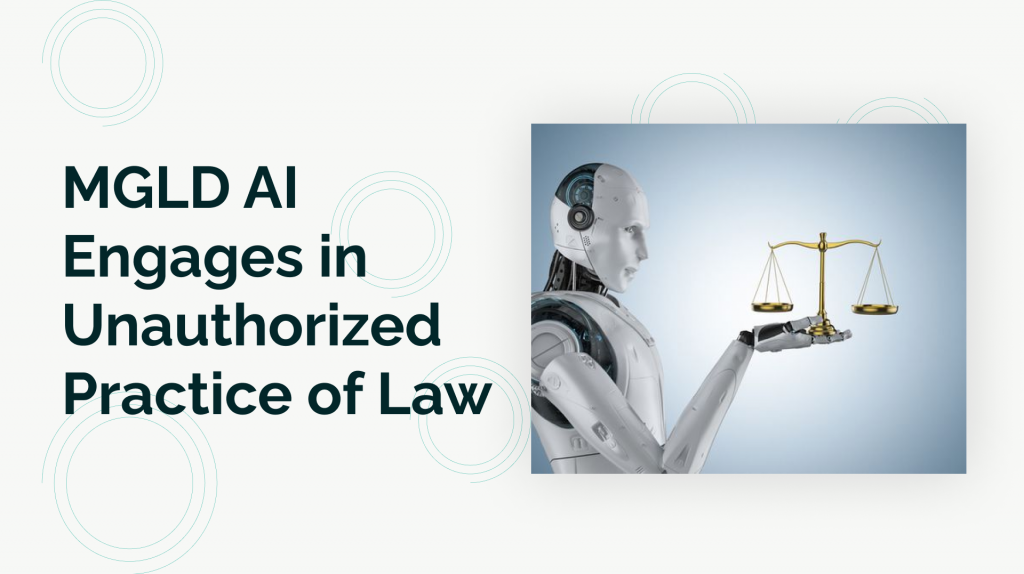Machine Generated Legal Document (MGLD) Platform Found to Engage in Unauthorized Practice of Law

For the first time, an AI-backed legal tech platform was found to have engaged in the unauthorized practice of law.
The case centered around the machine generated legal document (MGLD) platform Upsolve.
Upsolve automates “the information intake process and [preparation of] bankruptcy forms that [are] then reviewed by an attorney.”
In other words, Upsolves takes data and uses it to generate a document that would otherwise be generated by an attorney.
The lawsuit involved a pro-per petitioner that used Upsolve to help draft a voluntary Chapter 7.
Given that the document appeared to be written by an attorney, the court was suspicious of how this petitioner came to draft it “without counsel.” Because Upsolve was identified as the platform that assisted the petitioner in drafting, the court entered an Order to Show Cause to Upsolve.
In its defense, Upsolve argued that it had systems to filter out users “whose situations might require specialized advice or the exercise of legal judgment,” and that the software was “user-driven.”
The court didn’t buy it, asserting that “the moment the software limits the options presented to the user based upon the user’s specific characteristics – thus affecting the user’s discretion and decision-making – the software provides the user with legal advice.”
It makes intuitive sense: if a non-lawyer seeking legal advice asks an attorney “what their options are,” the attorney’s response (a limited set of legal options) would understandably constitute legal advice.
Presumably, Upsolve could have avoided liability if its platform was sold to bankruptcy attorneys who then acted as middlemen between Upsolve’s insights and their advice to petitioners.
This would not be so different from the relationship between pharmaceutical companies and doctors: pharmaceutical companies effectively provide doctors with a range of treatment options for a specified ailment and the doctors relay those limited options to a patient.
Taking the analogy one step further, MGLD platforms like Upsolve might still be able to market to non-lawyer individuals with the caveat that they “talk to their attorney about Upsolve” (mirroring drug commercials ending with “talk to your doctor about _____”).
It certainly would cut against Upsolve’s mission to provide affordable tools for individuals to proceed in simple bankruptcy proceedings, but an avenue nonetheless.
This is likely the first of many cases involving what MGLD processes constitute the practice of law and it’s incredibly exciting to be around at the start of what will be a fascinating tug-of-war between technical advancement and what it means to practice law.
PS – It’s worth noting that Upsolve’s click-to-accept disclosure stating “I understand that the Upsolve software acts entirely at my own direction and that Upsolve does not have the authority or ability to provide legal services” was found to be insufficient by the court. Some things you can’t just click-away. But, if you are looking to maximize your click-to-accept agreements’ enforceability, use Ironclad.
Thank you for sharing this informative post. You did a fantastic job explaining your points. Looking forward to reading your next posts.
The post has got me thinking. We didn’t considered things in that way. You have expanded our perspective. Thank you.